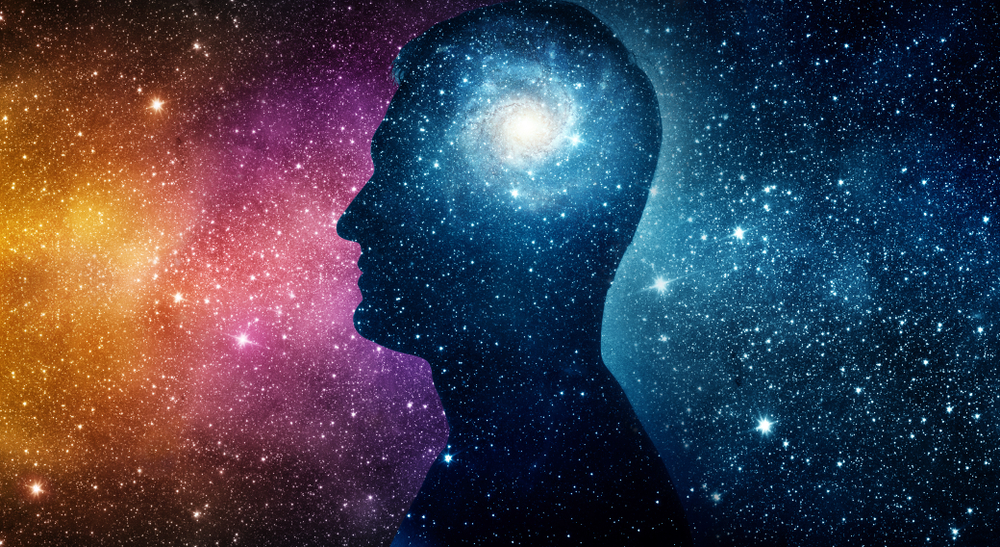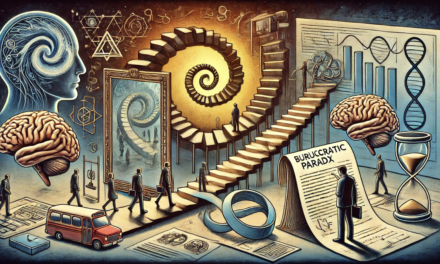Saving the planet needs faith and science
In an article in the Times, Justin Welby, the Archbishop of Canterbury, and John Browne, a past CEO of oil giant BP call for international co-operation not only to confront the challenge of the current pandemic but also to tackle the climate emergency. Their rallying call is for co-operation and the building of partnerships that bridge disagreement and disunity. They cite the difference between faith and science as an example of the differences we must put aside to save the planet that we all share.
“The key to understanding and addressing these existential threats”, they write, “lies in both the practical and the profound: in science and engineering, but also the idea, found in the Christian faith, that each person is precious, worth caring for and has potential.”
Of course, the same can be said for many of the other challenges that, taken together, can be thought of as the human predicament. Challenges such as pollution, biodiversity loss, violence, poverty, malnourishment & hunger and terrorism. And the fact that the call for co-operation is not new does not make it any the less valid. Remember Rodney King’s often (mis)quoted words during the six-day long Los Angeles riots in the Spring of 1992, “Can’t we all just get along?”
Welby and Browne recognize in their article that working together is difficult. They write, “Every single one of us, in all of our ignorance and selfishness as human beings, has to be part of the solution. … It will take broken people to repair a broken world.” This way of putting it will ring true for many people, particularly people who identify as Christians. But the elegant language glosses over a host of deep-seated problems intimately tied up with human nature.
We all need to belong.
Tribal behaviour is widespread across most aspects of human society. As a recent book by a leading American scholar puts it, “Humans are tribal. We need to belong to groups. We crave bonds and attachments, which is why we love clubs, teams, fraternities, family. Almost no one is a hermit. Even monks and friars belong to orders. But the tribal instinct is not just an instinct to belong. It is also an instinct to exclude.
Some groups are voluntary; some are not. Some tribes are sources of joy and salvation; some are the hideous product of hate-mongering by opportunistic power-seekers. But once people belong to a group, their identities can become oddly bound with it. They will seek to benefit their group mates even when they personally gain nothing. They will penalize outsiders, seemingly gratuitously. They will sacrifice, and even kill and die, for their groups.” (Chua)

And that willingness to put the tribe’s interests ahead of all others is a problem because tribes have genuine disagreements about how societies should be organized, emphasizing, to different extents, the rights of individuals versus the greater good of the group. Unfortunately, it is far from the only problem with tribal behaviour. Tribal values also differ along other dimensions, such as the role of honour in prescribing responses to threats. Tribes tend to have distinctive moral commitments, typically religious or quasi-religious ones, whereby moral authority is vested in local individuals, texts, traditions, and deities or ideologies that other groups don’t recognize as authoritative. Like the individuals within them, tribes are prone to a phenomenon known as “biased fairness”, which allows group-level self-interest to distort their sense of justice. Tribal beliefs are easily biased. Biased beliefs arise from simple self-interest, but also from more complex social dynamics. Once a belief becomes a cultural identity badge, it can perpetuate itself, even as it undermines the tribe’s interests. Finally, the way we process information about social events can cause us to underestimate the harm we cause others, leading to the escalation of conflict. (Greene)
Human nature promotes both harmony and division
The reasons for this rather depressing picture are becoming clearer because of our growing knowledge of human nature from research in the fields of psychology, cognitive neuroscience, evolutionary biology, sociology, and social science. Humans are above all else a social species, with much of our character and personality shaped by our social environment and many of our actions motivated by thoughts and feelings of which we are not consciously aware. One best-selling book on the topic explains it this way. “The research being done today reminds us of the relative importance of emotion over pure reason, social connections over individual choice, character over IQ, emergent, organic systems over linear, mechanistic ones, and the idea that we have multiple selves over the idea that we have a single self.” (Brooks)
The evidence of our inherently social nature is compelling. Since the 1950s, social scientists have demonstrated just how readily we humans form groups. Even the random formation of groups by chance can lead to a sense of social identity! And we can all see this happening around us in everyday life. For example, in a recent TV quiz show called “impossible”, where individual contestants sit in three rows: top, middle and bottom, the host Rick Edwards was prone to make comments such as “the top row is scoring well”, which would lead those contestants on the “top row” to celebrate together as a spontaneous new social grouping!!
It appears that we humans need our “tribal sense”—it tells us who we are, how we should behave, and links us to others as well as the past and future. “As human beings, we sort ourselves into groups. And once we identify ourselves as a member of a particular group—say, Red Sox fans—we tend to feel more comfortable with others of our own kind, rather than, say, Yankees fans. Yet we all belong to multiple groups at the same time—one might be a woman, a mother, an American, a violinist. And this “tribal mind” alters our thoughts, affects our health, and is manipulated for good and ill. From the medical effects of stress to the rhetoric of politics, our perceptions of group identity affect every part of our lives.” (Berreby)
Our brains have highly-developed systems for perceiving “human kinds”, based on how we relate to people at the moment when we categorize them – what we want, or expect, or fear from them. It happens mainly out of our awareness and at lightning speed. It isn’t about abstract, disembodied thoughts: it’s about actions — what we’re doing and planning to do as they relate to what other people are doing – and so it first reaches our awareness in the form of emotions.
Perhaps the most extreme form this takes is when “our kind” is at war with others. In war, we seem to have some way of overcoming our inherently social nature, and we become what one evolutionary psychologist has named “the most dangerous animal”. (Livingstone Smith) Nearly all known societies enforce a taboo against killing people, so before warfare can be legitimized, it is necessary to subject the human kind against which war is contemplated to a social process that escalates from marginalization through dehumanization to demonization. Once this process is complete, we relate to “them” with either fear or disgust. Thus, we are motivated to protect “us” by dominating or exterminating “them” using whatever means we have at our disposal.

But these same systems in our brain that distinguish “our tribe” from “our tribe’s enemies”, also tell us where we stand in the hierarchy within our own tribe, which, it turns out, has far-reaching implications beyond simply establishing our status. Thanks to the last few decades of research on the connections between emotions, stress, and health, there is abundant evidence that stigma is physically bad for people. It shortens their lives, lessens their abilities, and increases the allure of false consolations, like drugs and drink, that do harm. Because we have built-in automatic means of detecting human kinds, there is a direct link between the practices and symbols of stigma in a society and the bodies of people who must live with those practices. Stigma drives up blood pressure, scrambles sleep, and increases your chances of dying young. Its effects are transmitted to the next generation too: a stigmatized mother is under stress, and a stressed mother is more likely to give birth to babies with physical and emotional difficulties. (Berreby)
Disagreement can escalate into conflict
In addition to the need to belong and the human tendency to continually distinguish “us” from “them”, there is a third obstacle that hinders the co-operation called for by Browne and Welby. It is the subject of a newly published book: ‘Conflicted: a History of Argument’ by Ian Leslie. The author asserts that in a world where it’s easier than ever for people to share their opinions, we should be reaping the benefits of diverse views. Instead, he maintains, we too often find ourselves mired in hostility or – worse – avoiding disagreement altogether.

I’m sure I’m not the only person to have observed this friction for myself in diverse settings: businesses, projects, churches, clubs and families. Indeed, it is what has driven me to invest much effort in learning all I can about the art and craft of facilitating group discussion. But in ‘Conflicted’, Ian Leslie grounds some of his main ideas in psychological research. For example, the analysis that Dan Sperber and Hugo Mercier describe in their book ‘The Enigma of Reason’ – a fascinating study that challenges one of the unexamined assumptions about Reason’s role in human nature.
The authors drop their bombshell very early in their account. “Whereas reason is commonly viewed as a superior means to think better on one’s own, we argue that it is mainly used in our interactions with others. We produce reasons in order to justify our thoughts and actions to others and to produce arguments to convince others to think and act as we suggest. We also use reason to evaluate not so much our own thought as the reasons others produce to justify themselves or to convince us.”
We all know how quickly and intuitively we grasp our own reasons for preferring a particular belief, decision, or course of action. We also know how carefully we examine others’ reasons, notably when their conclusions differ from our own. And these two ways of thinking fit closely together. As Sperber and Mercier put it, “Reason has two main functions: that of producing reasons for justifying oneself, and that of producing arguments to convince others.” They point out that, “When we listen to others, what we want is honest information. When we speak to others, it is often in our interest to mislead them, not necessarily through straightforward lies but by at least distorting, omitting or exaggerating information so as to better influence them in their opinions and in their actions.”
This mismatch between our speaking and our listening has unfortunate consequences for co-operation between individuals and groups. All too easily, the challenge to our beliefs leads to a heightened emotional state that has its roots in human biology. Ian Leslie explains it this way: “When people are presented with evidence that challenges their strongly held political beliefs. … it triggers the same areas of the brain that activate in response to physical threat. Even in relatively mild disagreements, our interlocutor becomes a dangerous antagonist out to harm us. That’s why our bodies react as they do: the chest tightens, the pulse rate quickens.”
Facing the facts
These insights into biological barriers to co-operation are facts that we should take seriously. But it is also true, as Welby and Browne maintain, that if humans are to continue to flourish as members of the earth community, we need to find ways to co-operate economically, socially and politically.
Perhaps we all need to take to heart what Jim Collins, author of the best-selling management book ‘Good to Great’ describes as the Stockdale Paradox. On his web site, Collins writes, “The name refers to Admiral Jim Stockdale, who was the highest-ranking United States military officer in the “Hanoi Hilton” prisoner-of-war camp during the height of the Vietnam War. Tortured over twenty times during his eight-year imprisonment from 1965 to 1973, Stockdale lived out the war without any prisoner’s rights, no set release date, and no certainty as to whether he would even survive to see his family again. …”
He did not know the end of the story. When Collins asked him how he dealt with this, he replied, “I never lost faith in the end of the story, … I never doubted not only that I would get out, but also that I would prevail in the end and turn the experience into the defining event of my life, which, in retrospect, I would not trade.
“This is a very important lesson. You must never confuse faith that you will prevail in the end—which you can never afford to lose—with the discipline to confront the most brutal facts of your current reality, whatever they might be.”
It’s a lesson that we should all learn.
Terry Cooke-Davies
May 2021






